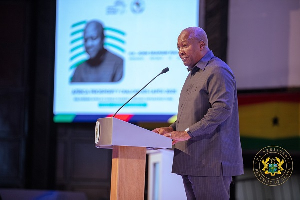Accra, May 21, GNA - The Village Savings and Loan Associations in Jawia in the Upper West Region has requested to go into small ruminant production in their community to challenge the age-long tradition that women cannot rear animals. With the help of Plan Ghana, the women have successfully formed an association which is into the rearing of livestock, a statement from Plan Ghana said in Accra on Thursday. The associations - the Laane Association now has 18 nannies, 1 Billy goat and 8 kids while the Kayeriwori Association has 18 nannies, 2 Billy goats and 10 kids. On Tuesday, a team of senior officials from the country office of Plan Ghana visited the women groups in Tumu in the Upper West Region to see how they are faring. The Country Director, Samuel Paulos, who led the team, said he was happy that the project was being constantly monitored by Plan Ghana staff and other government agencies. The ruminant project is aimed at helping the women in rural areas to find means of survival. In this case the project is to rear animals so that as they multiply, the women can sell some as a source of income.
Part of the income could also be channelled into their Village Savings and Loan (VSLA) funds so that they can get more loans and more interest.
The statement said the association had its own constitution that governed their activities. "The women were proud that they initiated the project, provided labour and Plan Ghana provided funds for the housing, the animals and veterinary services."
It quoted one of the women as saying ''formerly, I could not rear animals in the community. However, this project has disproved the idea and now I can go to the market with my animals to sell when the need arises to increase my income''.
Founded over 70 years ago, Plan is one of the oldest and largest international development agencies in the world working in 49 developing countries across Africa, Asia and the Americas. Plan directly supports more than 1.5 million children and their families, and indirectly supports an estimated further 9 million people who live in communities that are working with Plan.
Regional News of Thursday, 21 May 2009
Source: GNA
















